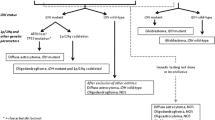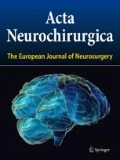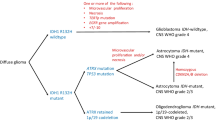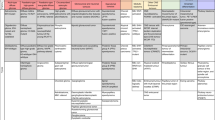Summary.
Background. Meningiomas are mostly benign tumours that can be cured by surgical resection. Because meningiomas tend to recur, long term management in patients with subtotal tumour resection remains controversial. Previous studies have shown that the proliferation potential of meningiomas by Ki-67 labelling indices (LI) might predict their natural history. The purpose of this study was to analyse the reliability of Ki-67-labelling index in predicting the behaviour of meningiomas, and to help the neurosurgeon in establishing better follow up criteria and long term management strategies for these patients.
Method. From 1990 to 2000 1328 meningiomas have been operated in our Neurosurgical Department. A total of 600 tumours were examined immunohistochemically using the Mib-1 monoclonal antibody. Clinical charts of the patients including surgical, histological and follow up records, as well as imaging studies were analysed retrospectively. Ki-67 LI were correlated with neuroradiological findings, 3D volumetric studies, histological subtype, recurrence-free survival, grade of resection, consistency of tumour tissue, location, osseous involvement, en plaque appearance, vascularity and progesterone-receptor status.
Findings. Among the 600 patients analysed, there were 66% females (mean LI 3.8%) and 34% males (mean LI 5.7%), including 20 neurofibromatosis-type-2 (NF-II) patients with a mean LI of 5.2%. Histological grading revealed 91% WHO°I meningiomas (mean LI 3.28%), 7% WHO°II (mean LI 9.95%) and 2% WHO°III (mean LI 12.18%). Labelling indices in recurrent meningiomas increased from initial resection to a fourth local resection. A significant correlation between negative progesteron-receptor status and high tumour vascularity with high Ki-67 LI was seen. Ki67 was not a statistically significant predictor of survival time in totally excised WHO°I meningiomas.
Interpretation. Mib-1 is one important tool in addition to routine histological evaluation, but a combination of clinical factors and particularly the extent of surgical resection, along with the biological features of the tumour, should influence the decision of the neurosurgeon to the patient follow up.
Similar content being viewed by others

Author information
Authors and Affiliations
Rights and permissions
About this article
Cite this article
Roser, F., Samii, M., Ostertag, H. et al. The Ki-67 proliferation antigen in meningiomas. Experience in 600 cases. Acta Neurochir 146, 37–44 (2004). https://doi.org/10.1007/s00701-003-0173-4
Published:
Issue Date:
DOI: https://doi.org/10.1007/s00701-003-0173-4



